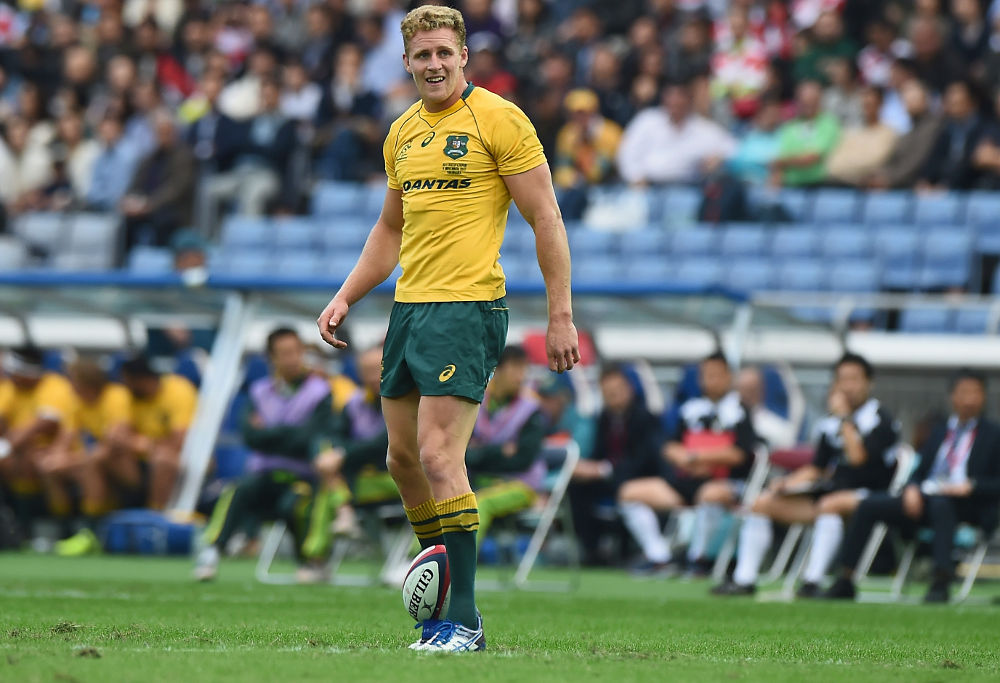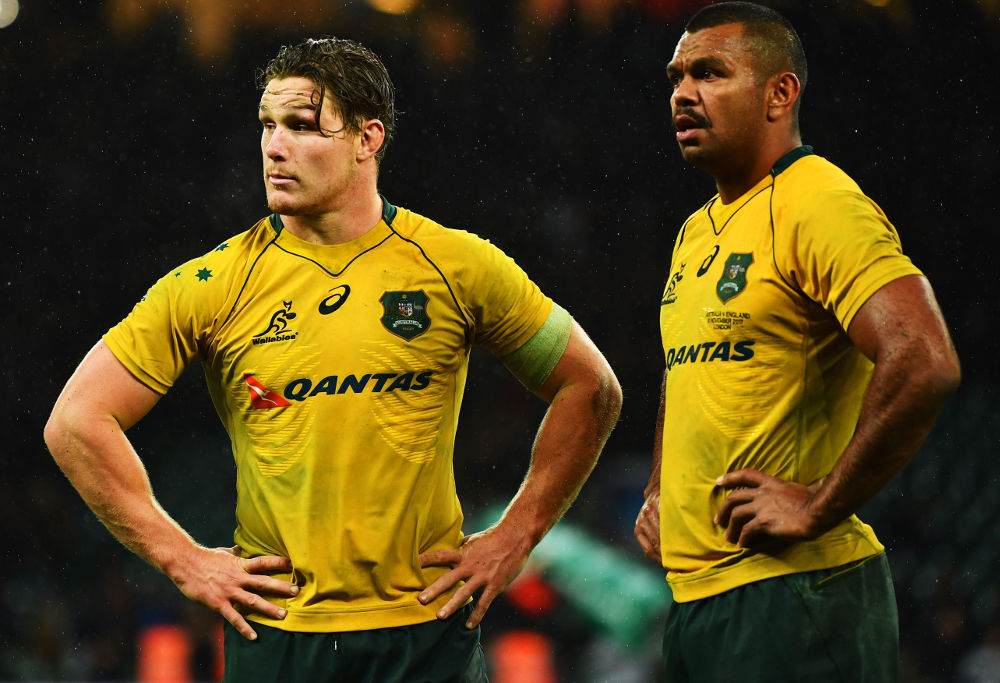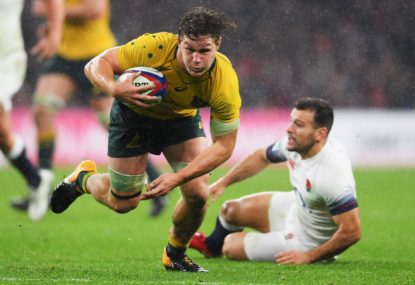We’ve all seen it before. We’ve all seen it before so often that we shouldn’t fall into the trap any more. Maybe we’re so used to seeing it that we trip over in the race to dive into the trap voluntarily.
The Wallabies play really well, and we react accordingly. Then they play less than ideally, and we react accordingly. By claiming ‘we wuz robbed’. We fall into the trap every time.
But after two solid days of argument, counterargument, second, third, and fourth-guessing the actual, proper, serious intent of the way any one law was written at the time – and every subsequent interpretation thereof – along with magnified, still-shot analysis of slow-motion footage, it might be getting close to the time to start looking into the way the Wallabies cost themselves in the loss to England.
And refereeing isn’t part of it.
Yes, there were contentious decisions, but there are in every game. The contentious decision didn’t cost Australia the game, but the way they reacted to them – or didn’t, as it turned out – did.
[latest_videos_strip category=”rugby” name=”Rugby”]
Go-forward
Depending on where you look for your stats, the Aussies had anywhere between 44 per cent and 54 per cent of territory (which is further evidence of different people seeing different things from the same events in a game). The various sources all seem to agree the Wallabies had a small advantage in terms of possession.
Opta Sports suggest it was 54 per cent of territory and 56 per cent of possession. And within their numbers, the picture of the Wallabies’ go forward is pretty damning.
Only Sekope Kepu and Marika Koroibete were shown to be proper metre-hounds, averaging 11 and 11.7 metres per carry respectively.
Five of the starting forwards carried for single-figure meterage; Scott Sio with an extraordinary ten carries for just three metres, Rob Simmons with six carries for two metres, and none of Tatafu Polota-Nau, Blake Enever, and Ned Hanigan registering even one metre from multiple carries.
From the bench, it’s arguably worse, with Ben McCalman only just north of one metre per carry, and both Stephen Moore and Matt Philip less than that.
Tom Robertson, Allan Alaalatoa and Lopeti Timani didn’t carry the ball even once each. The Australian forwards made minimal inroads, and their replacements offered no call-carrying impact at all when it was most needed.
In the back, it’s not much better. From fullback, where cheap, stats-enhancing metres are plentiful via kick returns, Kurtley Beale made 40 metres from 14 carries.
This lack of go-forward was further compounded by yet another disappointing Bernard Foley kicking display from hand. Time and time again, when struggling to get out of their 22, a Foley kick would come down in the Australian half, doing half of England’s job for them.
It continues to astound that a known longer boot in Reece Hodge isn’t used more for clearing kicks. Equally, it’s apparent that even with a former Australian rules player among the coaching staff, none of the Wallabies’ kickers have managed to add any great length to their kicks.

Photo by Matt Roberts/Getty Images
That’s not to say that Mick Byrne should have had Foley punting 50 and 60 metres every time by now, but Foley isn’t kicking any further now than he was for the Waratahs five years ago. The same goes for Beale.
On a wet London afternoon, on a wet Twickenham turf, the last thing the Wallabies needed when they weren’t making any considerable ground was a kicking game of no great assistance.
Discipline
After conceding a 15-3 penalty count against Wales in Cardiff the week before, I was curious to watch what lessons might have been learnt on the discipline front.
Even more so, once it became obvious that the weather was going to force a more combative contest.
Sadly, it was more of the same, though at least the penalty count was even. Small mercies, I suppose.
After making headlines last weekend for equalling the record of most international yellow cards, Michael Hooper was always going to be playing with fire. But instead of not giving referee Ben O’Keeffe the opportunity to give him the unwanted record, Hooper was the most penalised player on the field. And worse, his ‘record breaking’ yellow came after he was told there would be a card if the Wallabies continued to infringe.
Not only did the Wallabies continue to infringe, Hooper led from the front.
Discipline also comes into the equation when it comes to positioning on the field, and particularly for a couple of the more contentious moments. Hooper knew he was in front of Tevita Kuridrani’s kick, and it’s not like he doesn’t know the offside law. Koroibete, by the same token, should have just dived on the ball and let momentum and moisture do the rest.
Moore was never in position to take a pass from Koroibete in his run to the line for what was the second disallowed try, and it’s debateable if he was really in position for Will Genia to find him, too.

Photo by Dan Mullan/Getty Images
Urgency
This was best exemplified by Beale’s lacklustre chase for what became Elliot Daly’s try.
Whether the ball went out or stays in is immaterial; Beale should have got there comfortably to ensure one way or the other that Daly didn’t have the opportunity to get a toe on it.
Again, on a damp playing surface, the Wallabies have all played enough rugby to know that kick chase, and reaction to opposition kicks and kick chase was going to be all important. But way too often were white jerseys running past gold ones in the race for the ball.
The great shame in all of this is that the Wallabies, on multiple occasions, showed some really nice touches in attack. They used Koroibete well in midfield, and Samu Kerevi was prominent, too. They made more clean breaks and beat more English defenders than the home side managed in return.
But England played the smart game; the patient game. They knew that the chances mightn’t come until late and they settled in to ensure they were ready to take them if and when they arose.
After Scotland’s impressive showing against New Zealand, the Wallabies’ big test now is to learn these lessons in a hurry as they prepare for return clash at Murrayfield.
And for those of us at home on the couch, the test is to not fall into the lazy trap of playing the man with the whistle.































































































